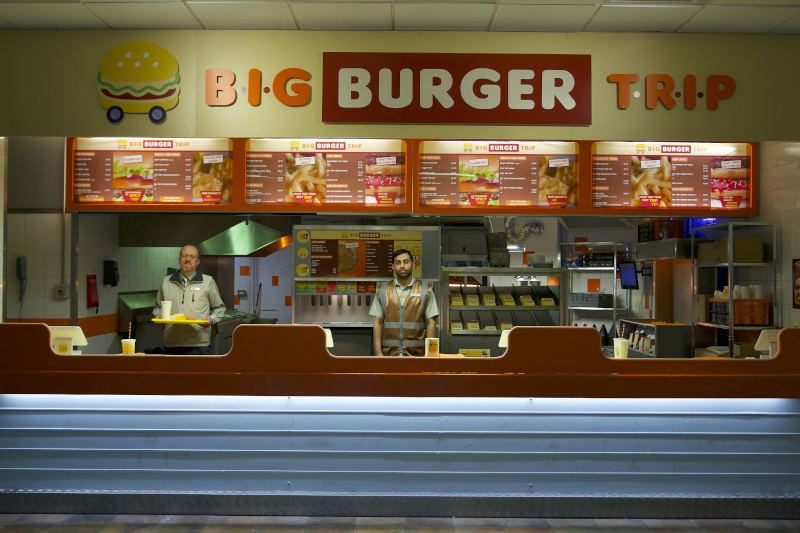Director – Moin Hussain – 2023 – UK – Cert. 12a – 91m
****
When his estranged father dies after leaving him an answering machine message, a motorway service station employee starts to question the identity of his father and, by extension, of himself – out in UK cinemas on Friday, August 9th
Adam (Faraz Ayub) receives an answerphone message from his father Hassan (Jeff Mirza) who he’s not seen for years; his father hasn’t much time left, is currently near Adam’s home and wants to meet up and talk. Like the answerphone message left by her soon-to-be deceased husband for the heroine of After Love (Aleem Khan, 2020) – is a British subgenre emerging here with Muslims and bereavement? – the recording plays on Adam’s mind at his workplace, the Sky Peals motorway service station, where he does the night shift preparing burgers in the kitchen and keeps himself pretty much to himself. He complains to his superior that the system isn’t working and customers aren’t getting served their orders, but the old manager has left, and the new one doesn’t start ’til Monday. Meanwhile, people aren’t getting their orders.
The police find a dead body in a car in the service station car park. The body and car later turn out to be those of his dad. Off his own bat, Adam investigates further, going through CCTV footage in the manager’s office, observing a seat where his father sat (which he later visits) and watching him cross the indoor bridge between the two sides of the motorway. The footage is heavily degraded in the manner of such footage. Disturbingly, as Hassan traverses the bridge corridor, he suddenly vanishes – is this a glitch in the recoding, or did he actually disappear?
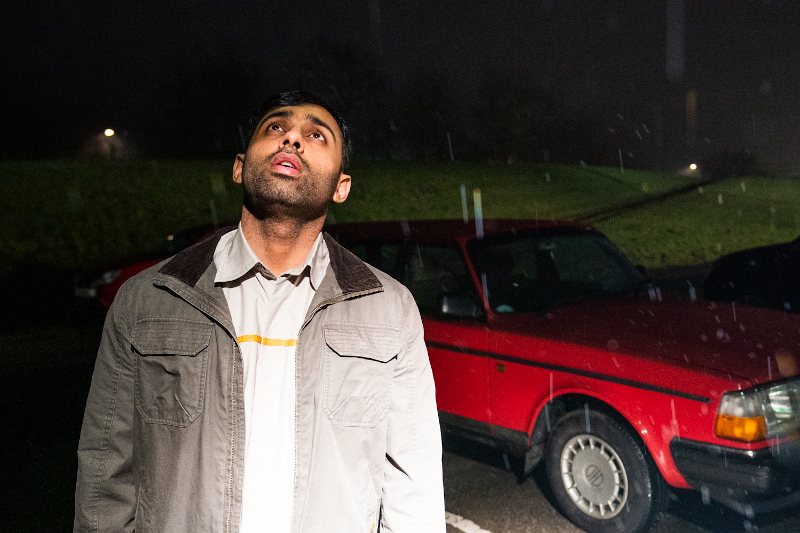
Adam’s isolated home life is similarly disorienting. His white British mother (Claire Rushbrook) – again, as in After Love, a white woman married, formerly in her case, to a South Asian Muslim – is in a relationship with a new man, and she seems much more interested in him than in her son. She hasn’t heard from Adam’s father in years, and the news of his death seems scarcely to affect her, as if she’s thought of him as already dead and gone for some considerable time. Meanwhile, she’s busy selling off the place where Adam currently lives, so when coming home from work on different occasions, he finds himself witnessing men clearing furniture and other items, an estate agent showing prospective buyers round and a demand for him to move out by the end of the day.
(This sometimes gets confusing for the audience – it’s always clear where Adam is working, and that he drives there and back by car, but as the film progresses it’s not entirely clear where he’s living – if he’s barricaded himself into his former home, there’s no sign of bailiffs trying to evict him; but he doesn’t appear to have moved house – except that, if you think about it, he must have done.)
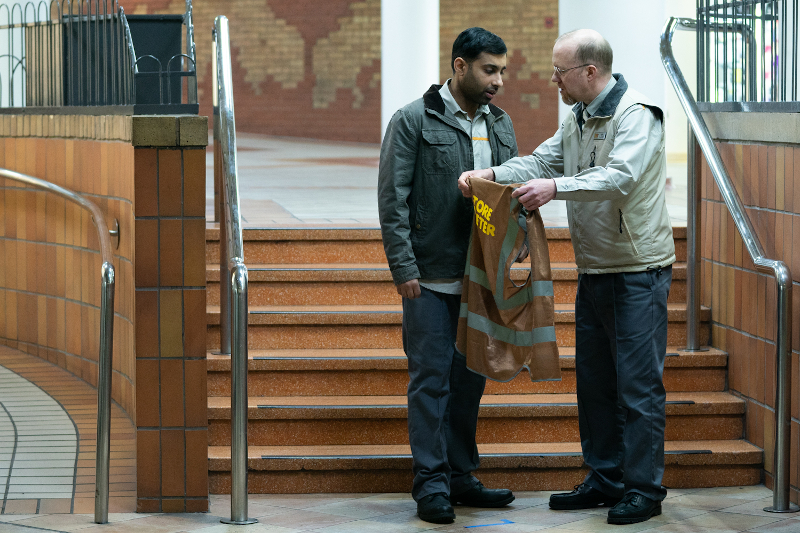
Thanks to his uncle Hamid (Simon Nagra), Adam learns of and attends his father’s funeral at a mosque. He turns up in a delapidated suit and tie, looking something of a fish out of water, since all the other men are wearing traditional Islamic garb. Still, Hamid is welcoming and insists his door is always open should Adam need anything. He feels equally out of place at work when clueless, new manager Jeff (Steve Oram) responds to Adam’s comments about queues not working by promoting him to Greeter, who guides new customers to the right queue at the front desk as they arrive, a role Adam does not want to fulfil and to which he feels completely unsuited.
Jeff pushes him to come to the work social, the sort of event Adam has managed to avoid for years, where he hits it off with co-worker Tara (Natalie Gavin), a single-parent mum who has moved several times following a relationship breakup, possibly because both of them share a similar sense of dislocation.
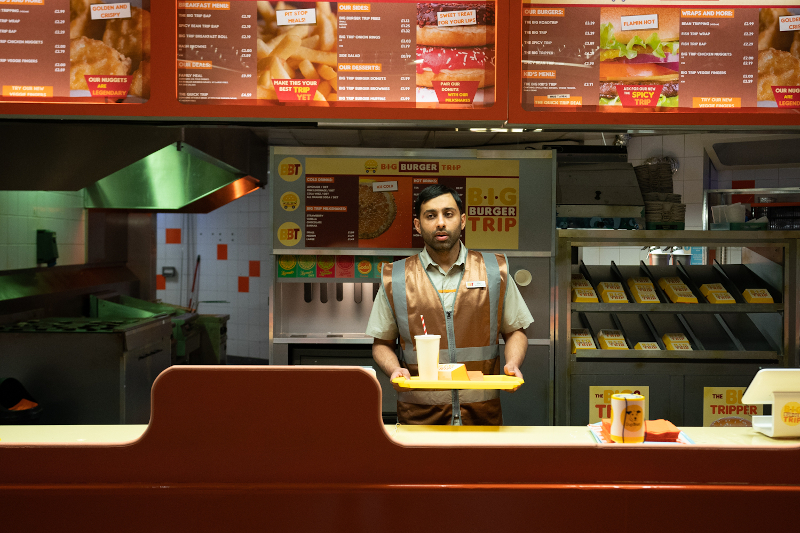
It seems such an obvious thing to do, to shoot a British movie in a motorway service station, that it’s quite extraordinary that no-one (as far as I know) has done it before. Adam is a very ordinary person doing a job which earns him a crust and allows him to keep himself out of the way of other people, but it’s one for which he has no real feeling or enthusiasm. That’s also true of his working environment, the bland, monolithic Sky Peals, which speaks of a soulless, cold, post-industrialisation where no one ever connects with anyone else.
His life feels on hold in much the same way. His home, which is little more than a place to stay without it being anything special, is about to be sold along with its furniture. He never really connected with his late father, he keeps failing to meet up with his mother, and he struggles to build a relationship with his uncle. Outside his family, he seems for most of the film incapable of responding to the friendly Tara, even if he recognises her as some sort of kindred spirit.
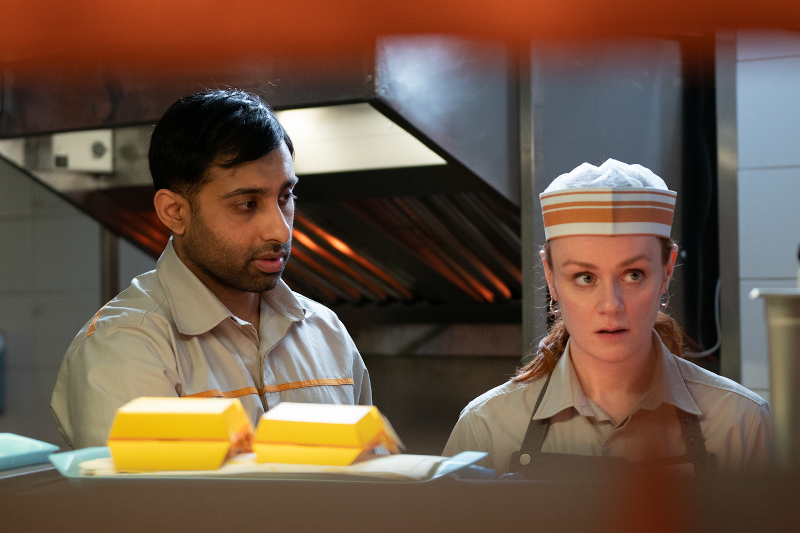
The piece was shot on 35mm film, and the cinematography is very rough and ready, with little use of traditional lighting techniques to prettify anything up. There’s a deliberate ordinariness and a drabness to it, including night exteriors where the only light is what would be found naturally, for instance headlights on parked cars when everything else registers as darkness. It might look basic, yet, somehow, by accident or design, it serves the overall theme well, contributing to the overall sense of the mundane and the pointless.
There’s also a down-to-earthness about the whole, which may have a lot to do with the Yorkshire setting and characters. As someone who has lived a good few years in that part of the world in the past, it was certainly a quality this writer recognised.
Although a mosque puts in an appearance, and there’s a Muslim element to the piece, this only serves to contribute further to the feeling of alienation – Muslims living in a British culture which doesn’t understand them. Adam, although of ethnic Pakistani stock, feels British rather than either Pakistani or Muslim (not that you can’t equally be two or three of these at once, more that this particular character doesn’t fit that model), and yet his Britishness feels very different from many of his co-workers who, seen letting their hair down at the works do, fit in more readily than he does.
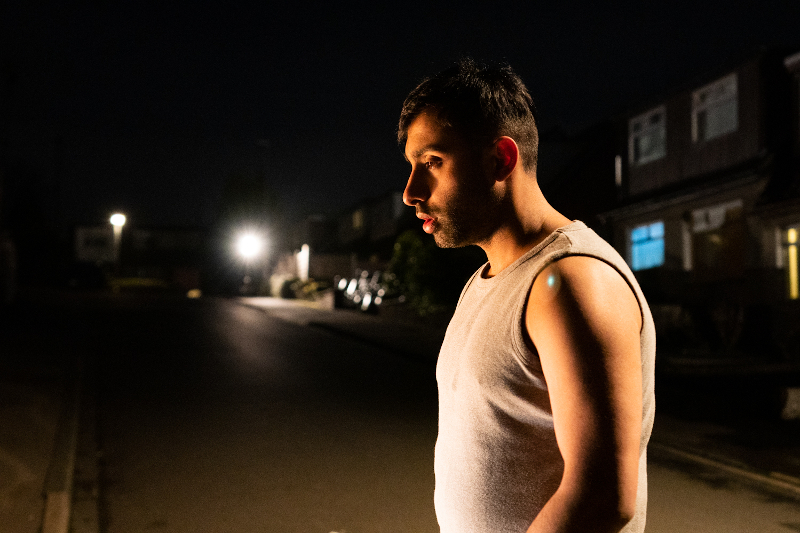
Much of the above sense of isolation and dislocation relates to bereavement. Adam has lost his father who he never really knew and about whom he’s now trying to find out, albeit too late to do so while his father was alive. He seems to be losing his mother too, to her new partner. He doesn’t really click with his cultural heritage as either a Muslim or a Pakistani, completely failing to relate to those who clearly tick both boxes when he’s introduced to them at the mosque.
(In terms of not connecting with religion, something similar could be staged equally well with a Christian church or a Jewish synagogue, certainly in Britain, perhaps also in other Western countries. The Western Christian cultural alienation is a slightly different animal, deriving from the West’s current Post-Christian status. Muslims, on the other hand, are a religious group who have never dominated in Britain or the West, so that’s a different sort of non-connection.)
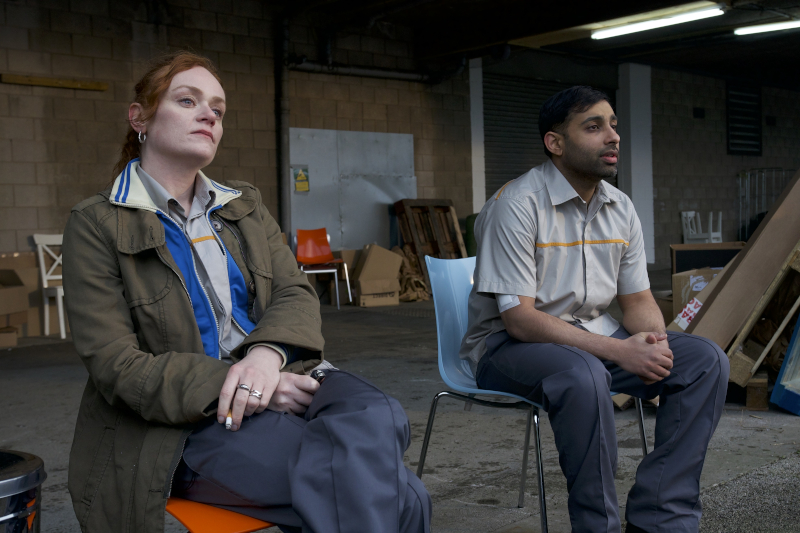
And yet, the film ends on an optimistic note, with Adam hanging out with the likewise dislocated Tara, the one person here with whom he shares some sort of affinity. They sit together looking out on a vista of British countryside at odds with the alienating architecture we’ve looked at during most of the proceedings.
Prior to this, though, the sense of disconnection is the thing, and writer-director Hussein here captures it quite brilliantly. Moreover, anyone who has lost a parent is likely to find much to relate to not only in lots of little details, but also in the overall scheme of things presented.
Sky Peals is out in cinemas in the UK on Friday, August 9th.
Trailer:
